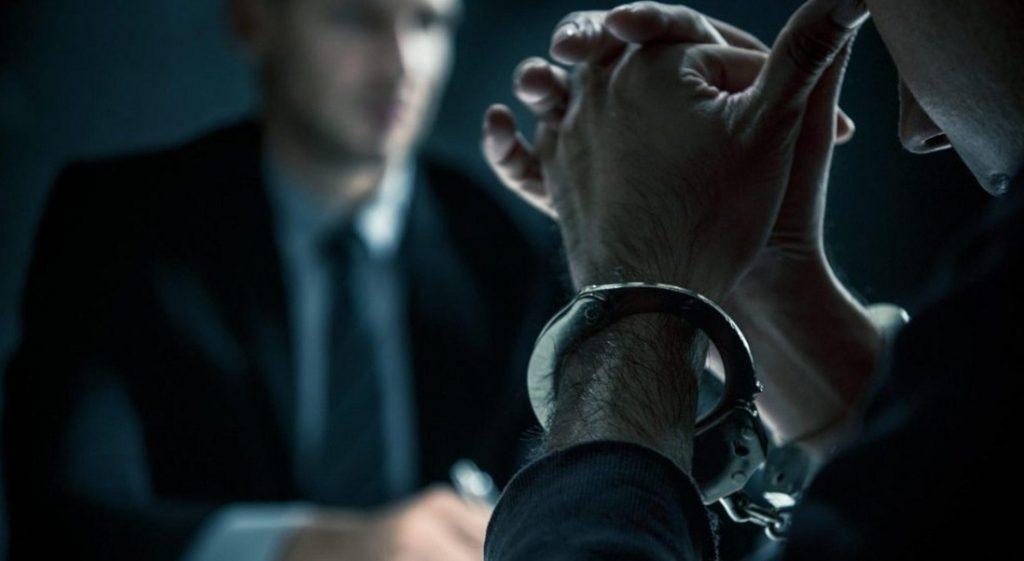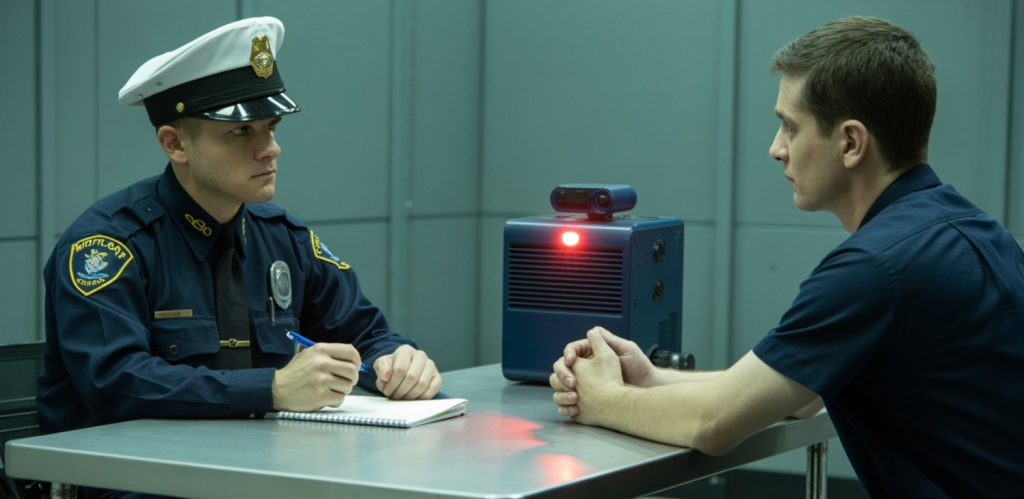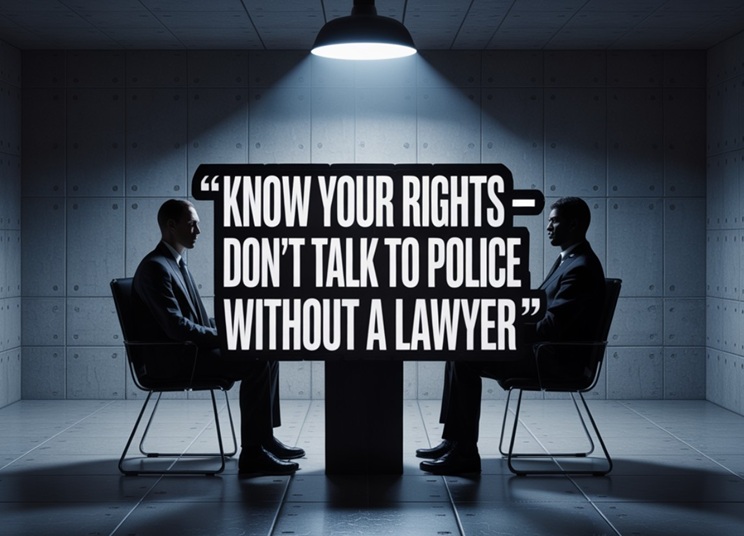Recording Suspect Interviews in Felony Cases
Michigan passed a law requiring the police to record the interrogation of suspects in major felony cases. When police take shortcuts and don’t follow the rules, a defense lawyer can fight to suppress evidence.

Police Must Record Investigation Interviews of Suspects in Major Felony Cases
Michigan passed a law mandating the recording of interviews conducted during the investigation of suspects arrested or in custody for serious felony cases. Serious felony cases carry a maximum sentence of 20 years or more. Although recording interviews is not new, a mandate is a positive step towards ensuring fairness in the most severe cases.
“Interrogation” means questioning, words, or actions in a criminal investigation that may elicit a self-incriminating response from an individual. The new law applies if the law enforcement agency has operational audiovisual recording equipment.
Law enforcement can make a recording without the suspect’s consent or knowledge. The individual being interrogated has no right to object to the recording. If they make a recording, they must use equipment and procedures designed to prevent alteration of the recording’s audio or visual record.
Suppose the police fail to record a major felony interrogation correctly. In that case, any law enforcement official who was present during the taking of the statement can still testify in court as to the circumstances and content of the individual’s statement. However, the judge will instruct the jury that recording the statement was required by law. The jury may consider the absence of a recording when evaluating the evidence relating to the individual’s statement.
What should you do if the police want to talk to you?
Most law-abiding clients never consider such circumstances since they do not foresee the possibility of ever having problems with the law. Unfortunately, life is not predictable, and some of us may find ourselves in compromising positions where the police will attempt to speak with us. It is almost always in your best interests not to speak with the police until you have first talked with an attorney.
Many people are aware of their right not to speak to the police, but waive their constitutional rights because they are afraid of looking guilty or think they can explain the situation sufficiently to avoid charges. The truth is that if the police are questioning someone, they have already formed a belief, and the only thing they are looking for is additional evidence. Anything that does not help the prosecution is ignored and presumed to be a lie.
When you find yourself in need, do not hesitate to exercise your Constitutional rights. Remember, exercising your Constitutional rights under the Fifth Amendment can never be used against you in a criminal case. Thus, if you find yourself in a situation where you don’t want to speak to the police, tell the police, “I want to speak to my lawyer before answering any questions. I invoke my right to remain silent.” A lawyer will rarely consent to a recorded interview in a felony or misdemeanor case.

Can a Confession Be Suppressed if It Was Not Recorded?
Yes. When police interrogate a suspect in a serious felony case without recording the interview, a defense lawyer can file a motion to suppress the statement. The Michigan statute doesn’t require automatic suppression, but judges can throw out an unrecorded confession if the police acted intentionally, recklessly, or caused unfair prejudice.
Judges evaluate whether the lack of a recording makes the alleged confession unreliable. Without video, no one can confirm what the officer said, how the suspect responded, or whether coercion played a role. When police question someone without a lawyer, apply pressure, and fail to record the interview, the defense gains substantial grounds to challenge the statement.
Even if the judge allows the statement, the law requires the court to instruct the jury that the police broke the rule by not recording. That instruction opens the defense up to attack the officers’ credibility and raise doubt about the accuracy of the alleged confession.
When the police violate recording laws, experienced defense attorneys know how to respond. They file motions to exclude the statement, force prosecutors to prove reliability, and aggressively question every detail of the interrogation. If you gave an unrecorded statement, your best chance to suppress it comes from hiring a lawyer who knows how to fight and win in court.

Don’t Delay. Talk to a Criminal Defense Lawyer Immediately
If the police want to question you, do not wait to see how things play out. That delay can cost you everything. You need a skilled, pre-charge criminal defense lawyer involved immediately. Talk to an attorney before you say anything, before the police twist your words, and before prosecutors build a case against you. The police are more likely to be fair in their investigations, including recording interviews, in felony cases if a respected lawyer is involved early in the process.
The early stages of an investigation often shape the outcome. A top pre-charge defense lawyer knows how to intervene, protect your rights, and speak on your behalf. In some cases, an experienced attorney can prevent charges from ever being filed. The right legal strategy, early in the process, can mean the difference between freedom and prosecution.
When you wait to call a lawyer, you give up control. You allow the police to define the narrative. You risk making statements that the prosecution will later use against you. Do not give them that chance.
Contact a respected, aggressive criminal defense attorney the moment you know the police want to speak with you. Protect yourself. Take action. Make the smart choice. Get a lawyer on your side before it is too late.

Michigan Criminal Defense Attorney
If law enforcement suspects you or someone you love of committing a crime, do not wait for them to issue a warrant before taking steps to protect yourself. You do not want to wait to see if they record an interview in a felony case before deciding to get help. Getting help early in the process is essential to protecting your rights! The best defense to a felony or misdemeanor allegation is a good offense. LEWIS & DICKSTEIN, P.L.L.C. can frequently intervene in a criminal investigation and prevent criminal charges or convince law enforcement not to charge all crimes under consideration.
Call us today at (248) 263-6800 for a free consultation or complete an online Request for Assistance Form. We will contact you promptly and find a way to help you.













